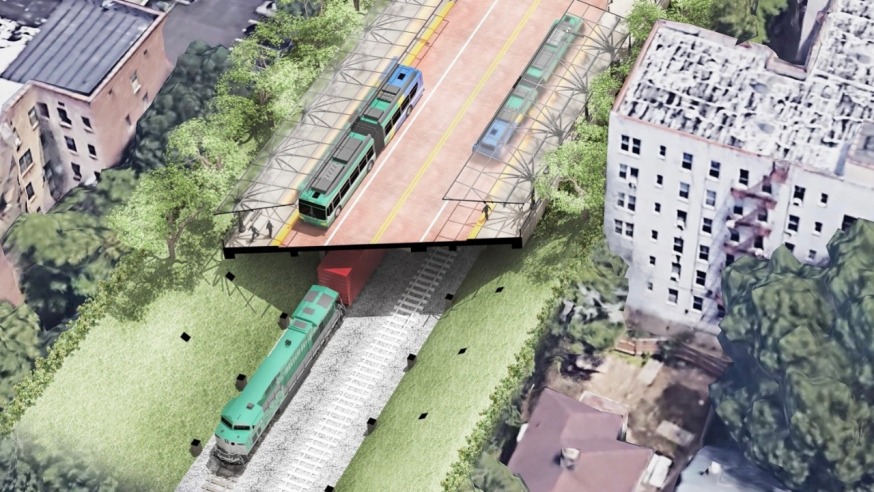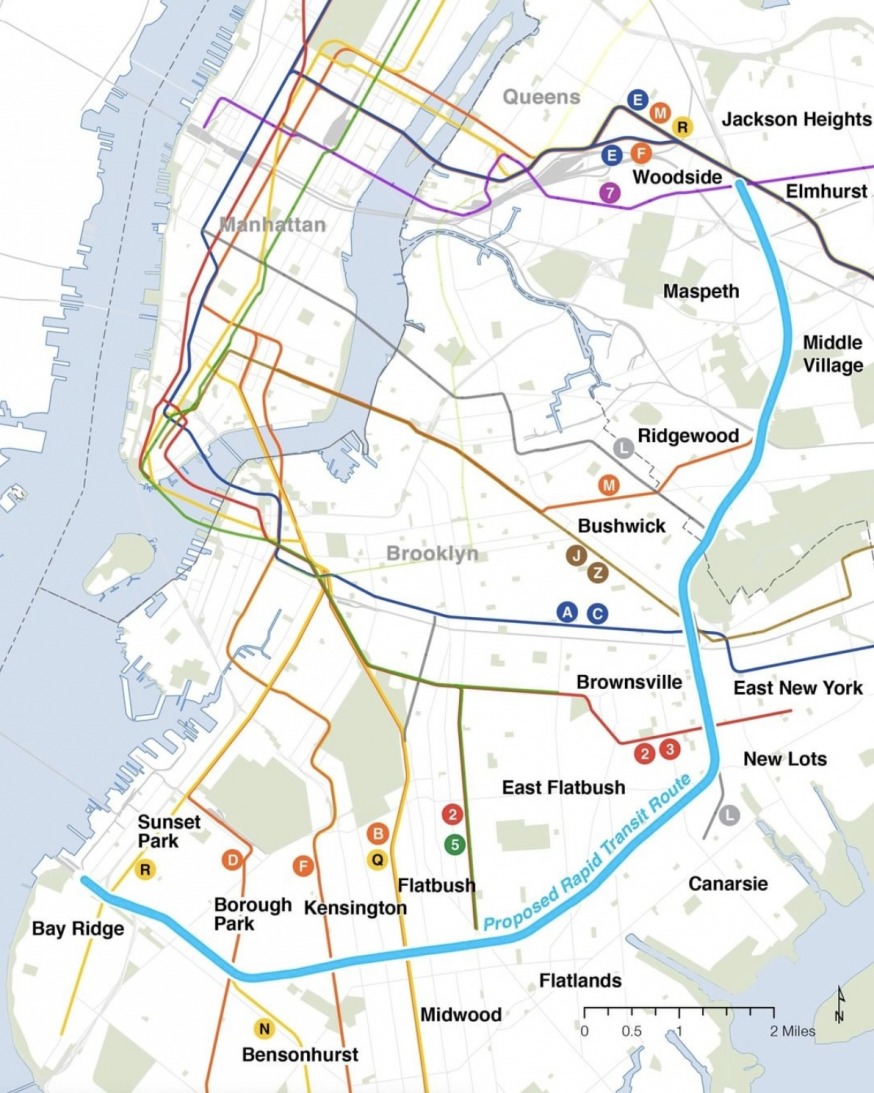
The Interborough Express would consist of either a bus rapid transit system, light rail or conventional heavy rail (Rendering provided by the MTA)
April 20, 2022 By Allie Griffin
A half-dozen Queens legislators are calling on the state to ensure that a proposed commuter rail link between Queens and Brooklyn doesn’t overburden the neighborhoods it will run through.
The elected officials penned a letter to Gov. Kathy Hochul and Port Authority of New York and New Jersey Executive Director Rick Cotton on April 7 asking them to address residents’ concerns over the Interborough Express.
Residents of Maspeth, Ridgewood, Middle Village and Glendale worry that the Interborough Express project — which calls for the conversion of an existing 14-mile freight line running through the neighborhoods into a commuter railway — will worsen already poor noise pollution and traffic congestion.
“These communities are familiar with the effects of noise pollution and earth-shaking vibrations caused by freight rail,” the lawmakers wrote in the letter. “For years, our constituents have raised concerns regarding the effects of freight trains.”
The railway would run from Jackon Heights to Brooklyn’s Sunset Park, where it would connect to another proposed project called the Cross Harbor Freight Program, which aims to build a four-mile freight tunnel from Jersey City to south Brooklyn.
Rep. Grace Meng — joined by State Sen. Joseph Addabbo; Assembly Members Cathy Nolan, Andrew Hevesi and Brian Barnwell; and Council Member Robert Holden — wrote that the state must incorporate noise cancellation and traffic congestion solutions into the two projects.
“We understand the significance of these projects as well as the potential benefits they may provide to our city, including decongesting our streets, expanding public transit, and reducing carbon emissions,” the officials wrote in the letter. “But without prioritizing noise mitigation, these projects may prove detrimental to the health and quality of life of the surrounding communities.”

Proposed route of the Interborough Express (MTA via Instagram)
They said the projects together would drastically increase train traffic through the neighborhoods which would worsen existing noise pollution and vibrations from passing train cars.
An environmental impact study in 2016 found that the Cross Harbor Freight Program would likely cause “moderate or severe noise impacts” on the nearby communities and could put some surrounding buildings at risk of damage caused by vibrations from the trains, according to the letter.
The legislators said constant exposure to the train vibrations can be unhealthy. They cited studies that have shown exposure to train noise and vibration can have negative health impacts including mood and sleep disorders and cardiovascular issues.
“As these plans are developed, the public health concerns as outlined must be taken into account,” they wrote in the letter.
The electeds also worried that the Cross Harbor Freight Program would increase the number of trucks in communities like Maspeth, Ridgewood, Middle Village and Glendale. According to the environmental impact study of the project, it would “drastically increase truck traffic” in those communities despite reducing the overall number of trucks on city streets, they said.
“These additional trucks have the potential to cause noise pollution, worsen traffic, and lower the local air quality,” Meng and the others wrote. “Unless measures are taken to ensure that the harmful effects of these trucks are mitigated, it is unacceptable for these neighborhoods to bear these burdens.”
The elected officials asked Hochul and Cotton to give full and fair consideration to the concerns of local residents during the planning of the proposed projects.
“We applaud the ambition that the Cross Harbor Freight Program and Interborough Express would bring to New York, but we must make sure they are built in a way that does not overburden and hurt the communities closest to these projects,” they wrote.
In January, the state determined that creating the Interborough Express project is feasible. The rail link would offer connections to 17 existing subway lines as well as the Long Island Rail Road and serve up to 88,000 people daily.
The next step for the project is an environmental review which should review some of the lawmakers’ concerns listed in the letter.
